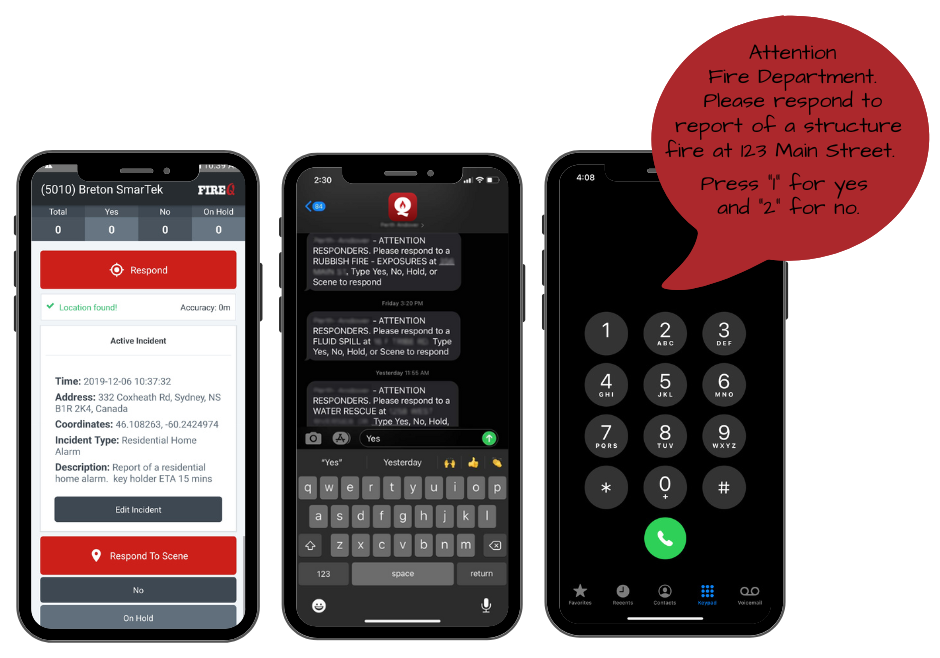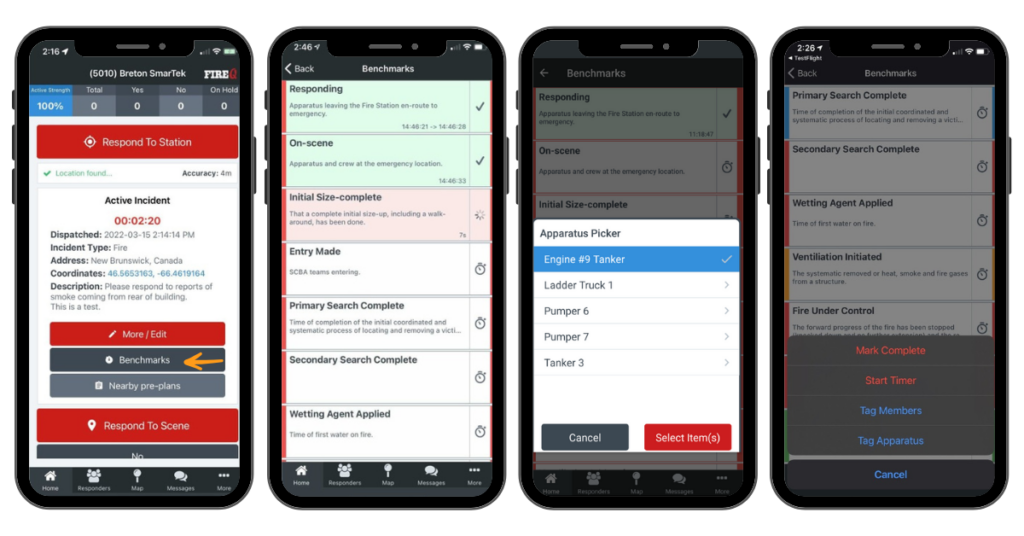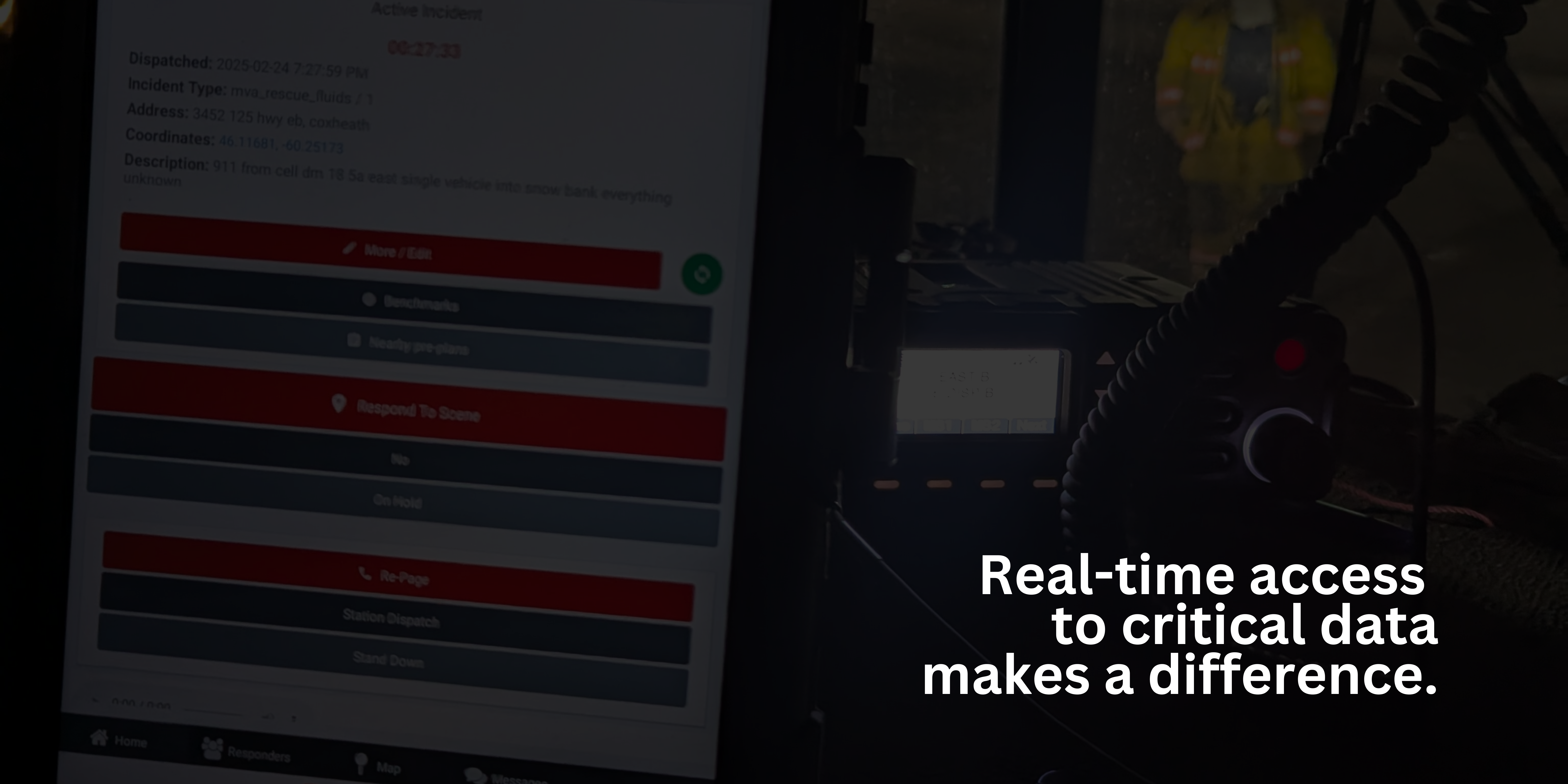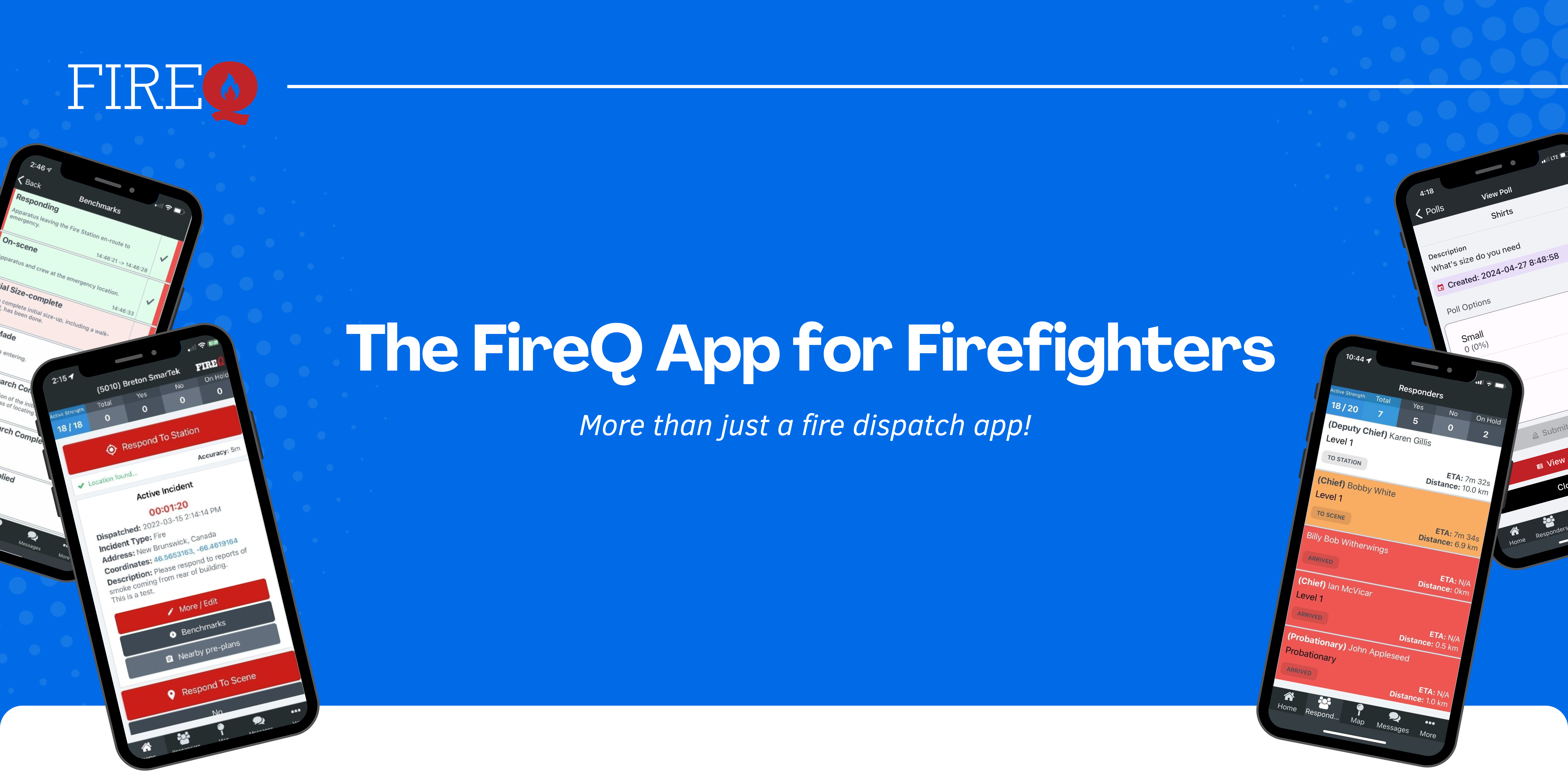In the high-stakes world of emergency response, every second counts. Firefighters operate in dynamic, high-pressure environments where rapid decision-making, clear communication, and accurate information are critical to saving lives and property. In this context a mobile access and field-use incident software, like FireQ, have become essential tools for modern firefighting. These technologies enhance operational efficiency, improve safety, and streamline data management, fundamentally transforming how fire departments respond to emergencies.
Real-Time Information and Decision-Making
Firefighters often arrive on the scene with limited information about the incident. Even though firefighters respond to a wider range of emergencies than other first responders, information available at the outset of an emergency is often limited.
With mobile incident software, firefighters receive emergency alerts that are designed to supplement primary paging methods. Alerts are sent across multiple communication channels (phone call, text message, push alert and email) ensuring the likelihood of receipt.

Enhanced Safety for Firefighters
Firefighting is inherently dangerous, and any tool that can improve safety is invaluable. 70% of firefighters in Canada are volunteers. This means that they are not at the fire station when the emergency alert is received. They are invisible in the earliest stages of their response…when they are leaving home or work and traveling to the fire station. Without a solution like FireQ, firefighters have no way to let their fellow firefighters know that they are responding to emergency. As a result, firefighters would not be missed if they did not arrive at the fire station. Using mobile incident software, firefighters signal their intent to respond as soon as the emergency alert is received.
Some mobile incident software solutions also offer integrated with personnel tracking systems, monitoring firefighter movements in real time. Solutions, like FireQ, also serve as a information hub that provides easy access to other critical information. Ready access to such things as weather conditions, wind direction, and hazardous material data in real time, helps firefighters avoid dangerous situations before they escalate.
Faster and More Accurate Reporting
Traditionally, much of the reporting and documentation related to firefighting incidents was completed post-incident, often from memory. This not only delayed reporting but introduced potential inaccuracies.
Firefighters using mobile incident software solutions can capture information from the fire scene. This information includes time-date and geo-stamped details of critical events that creates a timeline of what occurred at the fire scene. This immediacy results in higher-quality data, which is essential for analysis, compliance with provincial regulations, and future training purposes.

Depending on how fire departments are dispatched, field-use software can automate parts of the reporting process. Many solutions automatically generate an incident report populated with dispatch date and time, as well as the type and location of the emergency.
This saves administrative time and also provides valuable data for analyzing response outcomes and improving future strategies.
Supports Post-Incident Analysis and Training
The value of incident software extends beyond the active scene. The data collected through mobile platforms feeds into post-incident reviews and long-term analytics. Fire departments can assess what went well, identify gaps, and use those insights to improve protocols, training programs, and resource planning.
Scalability and Adaptability
Modern incident software solutions are scalable and adaptable. Thus, they can be customized for departments of all sizes and types. Whether responding to urban fires, rural emergencies, or specialized scenarios like chemical spills, mobile tools can be tailored to meet the unique demands of the situation. The adaptability of these systems ensures that firefighters are equipped with the right information, regardless of the emergency type.
Aligns with Modern Expectations and Technology Standards
Most Fire Chiefs know that modern expectations include an increasing administrative burden. As a result, more are coming to understand that technology standards are quickly becoming a must-have. In an increasingly digital world, first responders deserve tools that reflect the importance of the data they generate and collect by simply doing the work for which they are trained. They deserve tools that are designed specifically for them.
To Wrap Things Up
Firefighters face evolving challenges that require rapid adaptation and high-level coordination. Mobile access and field-use incident software have emerged as indispensable tools. Firefighters using them are empowered to respond more effectively, stay safer, and operate with greater efficiency.
The in-the-moment reporting tools provided by mobile incident software strengthens every aspect of emergency response. As fire departments continue to modernize their fire services, investing in mobile-compatible incident software is not just a step forward—it is a necessary leap toward safer, smarter, and more responsive firefighting.



